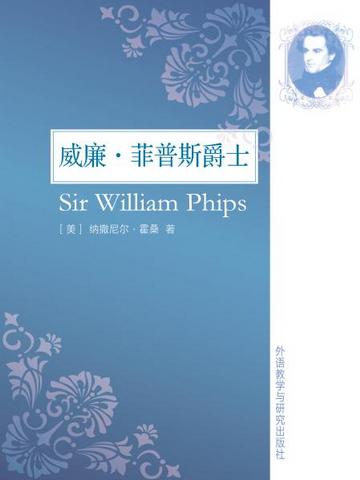纳撒尼尔•霍桑是美国19世纪影响最大的浪漫主义小说家和心理小说家,他的笔锋表面温和而实质犀利,他的作品想象丰富、结构严谨,常以暴露黑暗、讽刺邪恶、揭示真理为主题。霍桑的短篇小说《威廉•菲普斯爵士》简要讲述了威廉•菲普斯爵士从小到大的传奇经历,作者只选取了一些特定场景,笔触犀利深刻,让人深思,同时又充满讽刺和鞭笞,发人深省。
在小说《威廉•菲普斯爵士》中,作者从三个方面描述了威廉·菲普斯爵士前半生和后半生的不同境遇。小说开头描述了他成长的环境——肯纳贝克河口附近的一个边疆小村,在清教徒的管辖下,那里的政府无能,道德败坏;随后作者描述了威廉·菲普斯爵士在海上发财致富、而后又加官进爵的经过;最后,作者向我们展示了威廉·菲普斯爵士一天的生活状态,和三位黑衣长者商讨事宜、与一位昔日玩伴开心交谈、同一位舰长大打出手、而后主持宴会并检阅军队。
霍桑是心理小说的开创者,擅长剖析人的“内心”。他着重探讨道德和罪恶的问题,主张通过善行和自忏来洗刷罪恶、净化心灵,从而得到拯救。然而霍桑并非全写黑暗,他在揭露社会罪恶和人的劣根性的同时,对许多善良的主人公寄予极大的同情。
霍桑描写黑暗的巨大力量,是由于受到加尔文派教义关于与生俱来的堕落与原罪思想的影响。没有一位思想深邃的人能完全摆脱这种思想所发生的各种形式的影响。——梅尔维尔
霍桑的小说“属于艺术的最高层次,一种服从于非常崇高级别的天才的艺术。”——爱伦·坡
Nathaniel Hawthorne's reputation as a writer is a very pleasing fact, because his writing is not good for anything, and this is a tribute to the man.—Ralph Waldo Emerson
The fine thing in Hawthorne is that he cared for the deeper psychology, and that, in his way, he tried to become familiar with it.—Henry James
The style of Hawthorne is purity itself. His tone is singularly effective—wild, plaintive, thoughtful, and in full accordance with his themes... We look upon him as one of the few men of indisputable genius to whom our country has as yet given birth.—Edgar Allan Poe
- 威廉·菲普斯爵士
- Sir William Phips
- 书评 写书评
- 笔记
-
书评加载中...























 京公网安备 11010802032529号
京公网安备 11010802032529号
笔记加载中...